Cultivating Successful Facebook Event Promotion
Mastering the art of how to promote events on Facebook is essential for leveraging the platform's immense reach and engagement potential. Whether you're planning a small community gathering or a large-scale corporate event, understanding the nuances of Facebook event promotion can significantly impact your success. This comprehensive guide aims to provide you with actionable strategies to promote your events effectively on Facebook, enabling you to engage your audience and exceed your promotional goals.
Understanding the Facebook Algorithm
The first step in effectively promoting your event on Facebook is to understand how the platform's algorithm works. Facebook's algorithm prioritizes content that fosters engagement, meaning posts that receive high levels of interaction—likes, comments, shares—are more likely to appear in users' News Feeds. Therefore, crafting engaging, quality content is critical for your event's visibility.
Additionally, Facebook's algorithm assesses the relevance of your content based on user interaction history. This means that users who frequently engage with your content are more likely to see your event posts. To maximize this effect, it's essential to maintain a consistent posting schedule, ensuring continual interaction with your audience.
Creating an Irresistible Event Page
The foundation of successful Facebook event promotion is a well-crafted event page. This page serves as the primary hub for all event-related information and interaction. Here are some key elements to include:
Eye-catching Cover Photo: Your event page's cover photo is the first thing users will see, so it needs to grab their attention immediately. Use a high-quality image that reflects the event's theme or highlights a key aspect of it. Avoid cluttered visuals; instead, go for clean, impactful designs that encourage users to learn more.
Compelling Event Description: The description is your opportunity to inform and excite potential attendees. Clearly outline the event's purpose, schedule, location, and any notable highlights. Use persuasive language to convey the benefits of attending. Remember, your goal is to build anticipation and encourage RSVPs.
Tangible Details: Provide concrete information such as date, time, location, and ticketing details. Ensure that this information is clear and accurate to avoid confusion and enhance user experience.
Interactive Features: Enhance your event page with interactive elements like polls, Q&A sessions, and live videos related to the event. These features can boost engagement and provide valuable insights into your audience's preferences and expectations.
Leveraging Facebook Ads
While organic reach is valuable, Facebook Ads can significantly amplify your promotional efforts. By leveraging Facebook's sophisticated ad targeting capabilities, you can ensure your event reaches highly specific audience segments. Here are some strategies to optimize your Facebook Ads:
Custom Audiences: Utilize Custom Audiences to target users who have previously interacted with your content. This includes visitors to your website, previous event attendees, and those who have engaged with your posts. These users are more likely to be interested in your event, making them prime targets for your ads.
Lookalike Audiences: Create Lookalike Audiences based on your Custom Audiences. These are users who share similar characteristics with your existing audience, increasing the likelihood of engagement and attendance. Facebook's algorithms will help identify these users for more effective ad targeting.
Ad Formats: Facebook offers various ad formats including carousel ads, video ads, and event ads. Experiment with different formats to determine which resonates best with your audience. For instance, video ads can be particularly effective for showcasing highlights of a previous event, while carousel ads allow you to display multiple features of your upcoming event.
A/B Testing: Conduct A/B testing to optimize your ad performance. Test different headlines, descriptions, images, and calls to action to identify the most effective combinations. Continual optimization based on these insights can significantly enhance your ad strategy.
Content Strategy for Event Promotion
Creating a robust content strategy is crucial for maintaining engagement and excitement leading up to the event. Here are some content ideas to keep your audience engaged:
Behind-the-Scenes Content: Share behind-the-scenes glimpses of your event planning process. This humanizes your brand and builds a connection with your audience. You could post pictures of venue preparations, interviews with speakers or performers, or short videos of team meetings.
Countdown Posts: Generate anticipation with countdown posts. These can be daily or weekly updates that remind your audience of the upcoming event. Use engaging visuals and compelling messages to build excitement.
Spotlight Posts: Highlight key event features such as guest speakers, performers, or special activities. Create posts that delve into their background, accomplishments, and what attendees can expect. Tag these individuals or organizations to expand your reach to their followers as well.
User-Generated Content: Encourage attendees to create and share their content related to your event. User-generated content can be extremely effective, as it serves as authentic endorsements from real people. Feature this content on your event page and social media profiles to foster a sense of community and shared excitement.
Engaging Your Audience
Successfully promoting your event on Facebook goes beyond just creating and sharing content. It's crucial to actively engage with your audience to build a community around your event. Here are some engagement strategies:
Respond to Comments and Messages: Promptly responding to comments and messages shows that you value your audience's input and are available to answer questions. This builds trust and fosters a positive relationship with your audience.
Host Live Q&A Sessions: Live Q&A sessions can be highly engaging. Use these sessions to answer questions about the event, provide updates, and give attendees a chance to interact with speakers or organizers. Promote these sessions in advance to maximize participation.
Create Polls and Surveys: Create polls and surveys to gather feedback and insights from your audience. This not only engages them but also provides valuable data to improve your event. Ask questions about preferences regarding session topics, event activities, and more.
Community Building: Foster a sense of community by encouraging conversation among your attendees. You can create a dedicated group for your event where attendees can interact, share their excitement, and network before and after the event.
Collaborations and Partnerships
Collaborating with influencers, partners, or other organizations can significantly extend your event's reach. Here are some collaboration strategies:
Influencer Partnerships: Partner with influencers whose audience aligns with your target demographic. Influencers can promote your event to their followers, providing authentic endorsements that can drive attendance. Ensure that the influencer's brand and values align with your event for maximum impact.
Cross-Promotions with Partners: Collaborate with other organizations or businesses as promotional partners. This can include co-hosting the event, cross-promoting each other's content, and offering joint incentives for attendance. These partnerships can introduce your event to new audiences.
Guest Appearances and Features: If your event includes notable guest speakers, performers, or industry experts, feature them in your promotional content. Leverage their social media presence to promote your event to their followers and add credibility to your event.
Tracking and Analyzing Performance
Monitoring and analyzing your promotional efforts is crucial for understanding what works and identifying areas for improvement. Here are some key performance indicators (KPIs) to track:
Engagement Metrics: Monitor metrics such as likes, comments, shares, and post reach to gauge the effectiveness of your content. High engagement levels indicate that your content resonates with your audience.
Click-Through Rates (CTR): Track the CTR of your ads and posts. This metric indicates the percentage of users who clicked on your content to learn more, providing insights into the effectiveness of your calls to action.
Conversion Rates: Measure the conversion rates for your event RSVPs or ticket sales. This helps you understand the effectiveness of your promotional efforts in driving actual attendance.
Audience Insights: Use Facebook Insights to gather data on your audience's demographics, interests, and behaviors. This information can inform your targeting strategy and help you tailor your content to better meet your audience's preferences.
An advanced tool like Ocoya can streamline your event promotion efforts. Ocoya offers automated content creation, scheduling across multiple social media platforms, and detailed analytics to track your performance in real-time. By using Ocoya, you can ensure that your promotional content reaches the right audience at optimal times, maximizing engagement and attendance.
Utilizing Facebook's Event Features
Facebook offers several features specifically designed for event promotion. Here are some of the most useful ones:
Event Insights: Facebook provides detailed insights for your event page, including metrics such as reach, responsiveness, and engagement. Use these insights to refine your promotional strategy and identify successful tactics.
Boost Event: You can boost your event to reach a larger audience. This feature allows you to target specific demographics and ensure that your event appears in more users' News Feeds.
Invite Feature: Encourage your team, partners, and loyal followers to use the "Invite" feature to personally invite their friends to your event. Personal invites can be highly effective as they add a personal touch and carry more weight than general advertisements.
Event Reminder Notifications: Facebook automatically sends reminders to users who expressed interest in or RSVP'd to your event. These notifications ensure that your event remains top-of-mind as the date approaches.
Post-Event Engagement
Your promotional efforts shouldn't end once your event concludes. Post-event engagement is crucial for building long-term relationships with attendees and laying the groundwork for future events. Here are some strategies:
Thank-You Posts: Show appreciation to your attendees by posting a thank-you message. Highlight key moments from the event, share photos or videos, and express gratitude for their participation.
Post-Event Content: Share content such as event highlights, recorded sessions, and attendee testimonials. This not only maintains engagement but also provides valuable content for those who couldn't attend.
Surveys and Feedback: Collect feedback from attendees through surveys or follow-up messages. Understanding their experience and preferences can provide insights for improving future events.
Promote Future Events: Use the momentum of your current event to promote upcoming ones. Share teasers, save-the-date posts, and early-bird ticket information to build anticipation.
Mastering how to promote events on Facebook involves a combination of strategic planning, engaging content, and active audience interaction. By implementing these comprehensive strategies, you can effectively promote your event, maximize attendance, and create a memorable experience for your audience. For an enhanced and streamlined approach to social media marketing, consider trying Ocoya. This tool can simplify your content creation, scheduling, and analytics, allowing you to focus on delivering an exceptional event. Sign up for a free trial today and elevate your social media marketing efforts.
Key Takeaways
Craft an engaging event page with high-quality visuals and detailed descriptions.
Utilize Facebook Ads to target specific audiences effectively.
Develop a robust content strategy to maintain audience engagement leading up to the event.
Actively engage with your audience through comments, live sessions, and feedback.
Collaborate with influencers and partners to extend your reach.
Track your performance metrics to optimize your promotional strategy.
Utilize Facebook's event-specific features to enhance your promotion.
Engage with your audience post-event to build lasting relationships and promote future events.
Leverage advanced tools like Ocoya to streamline your social media marketing efforts.


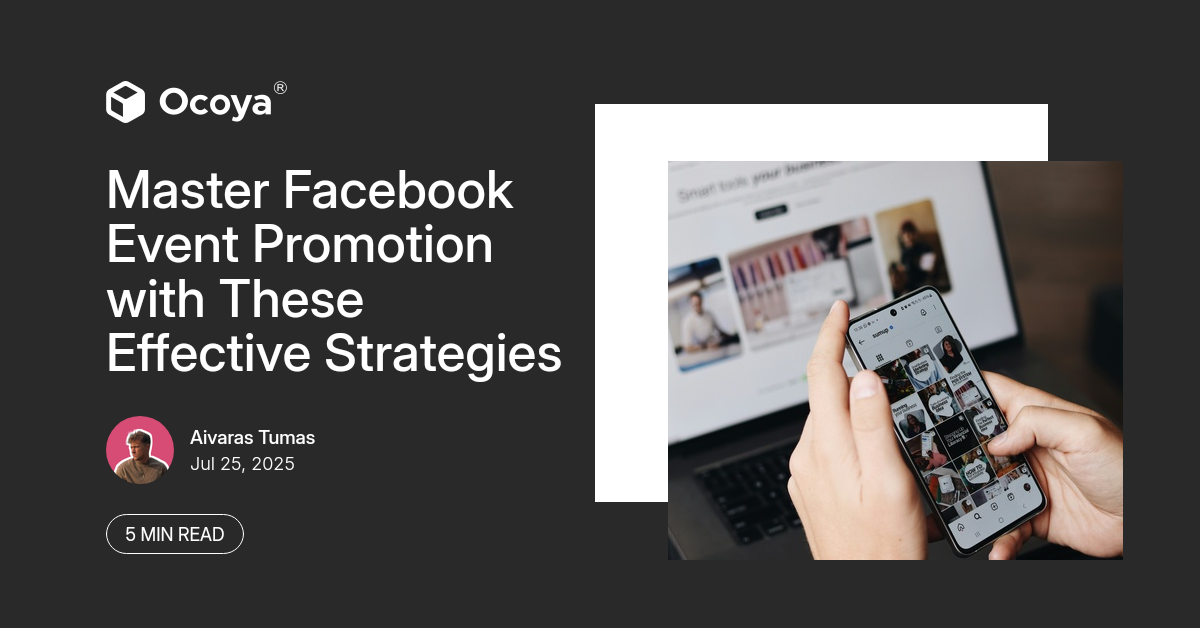



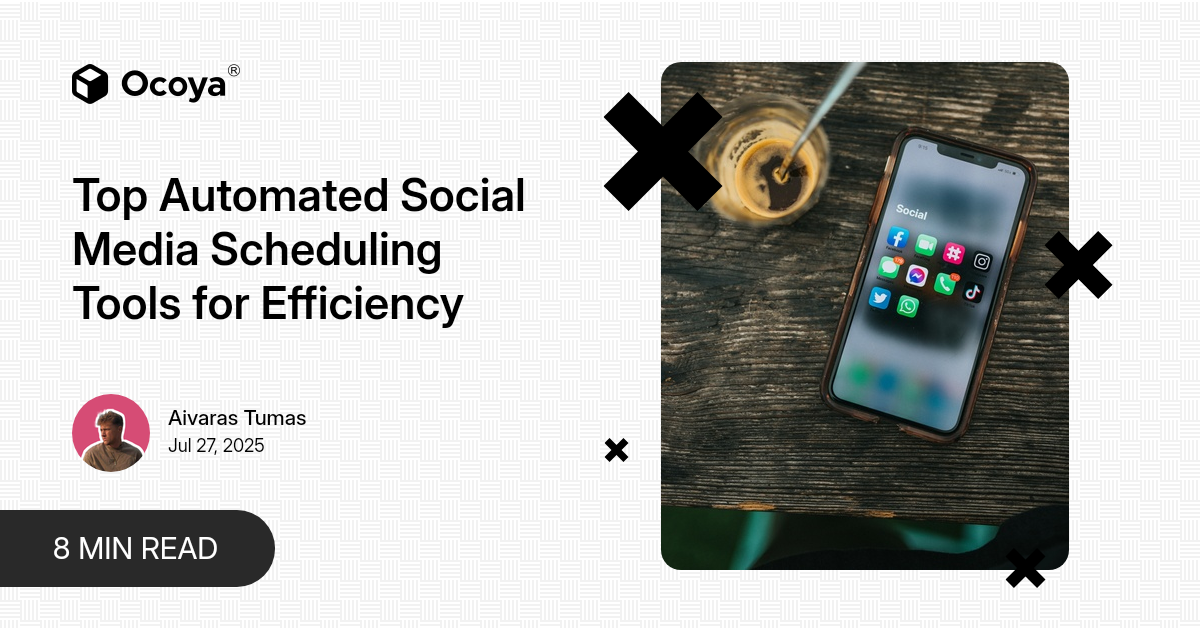
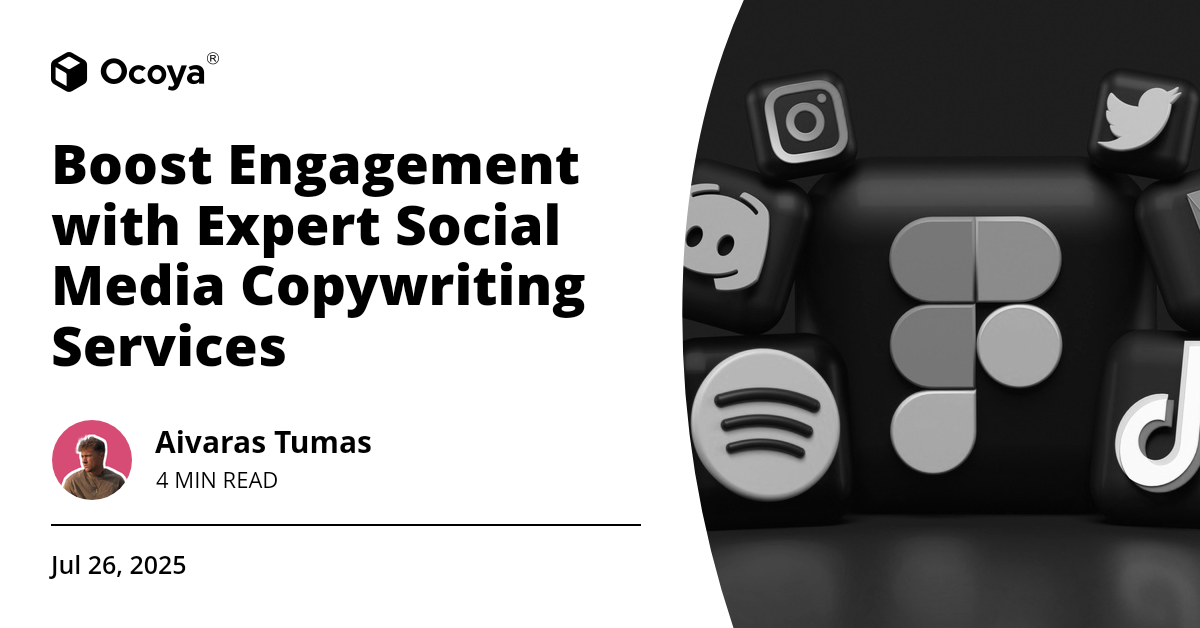










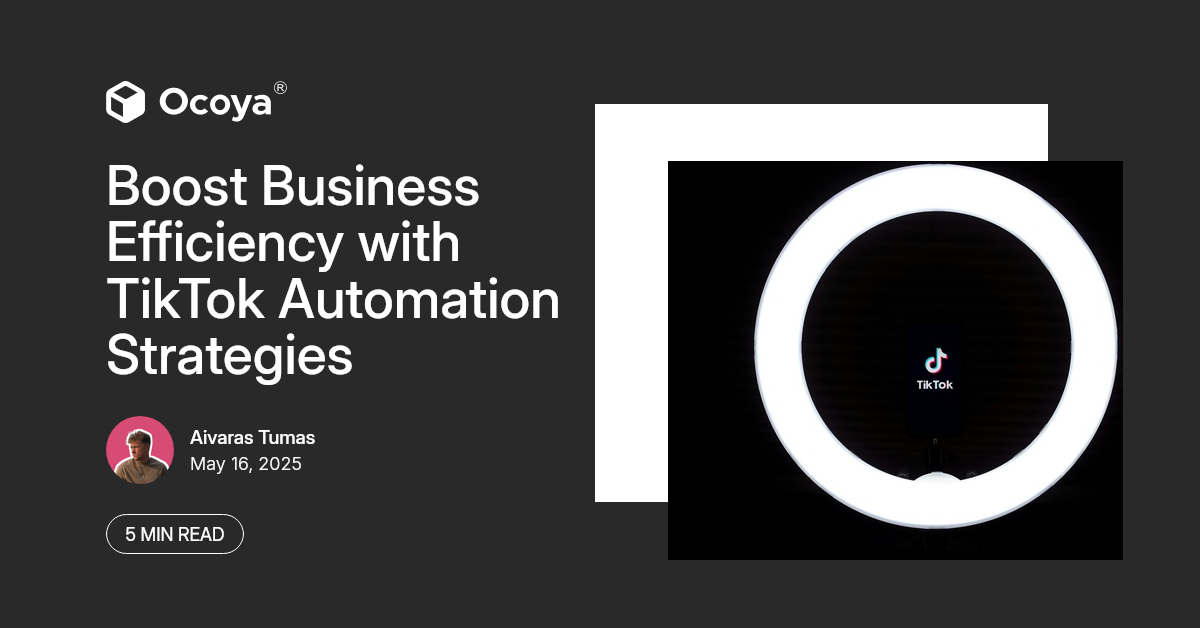



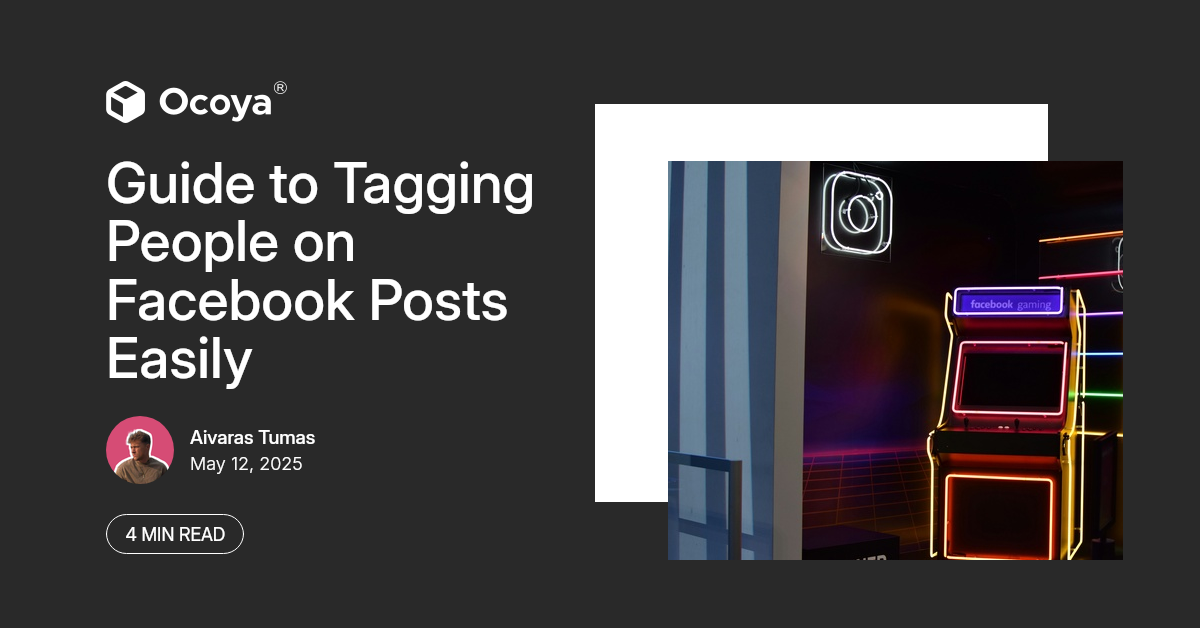

















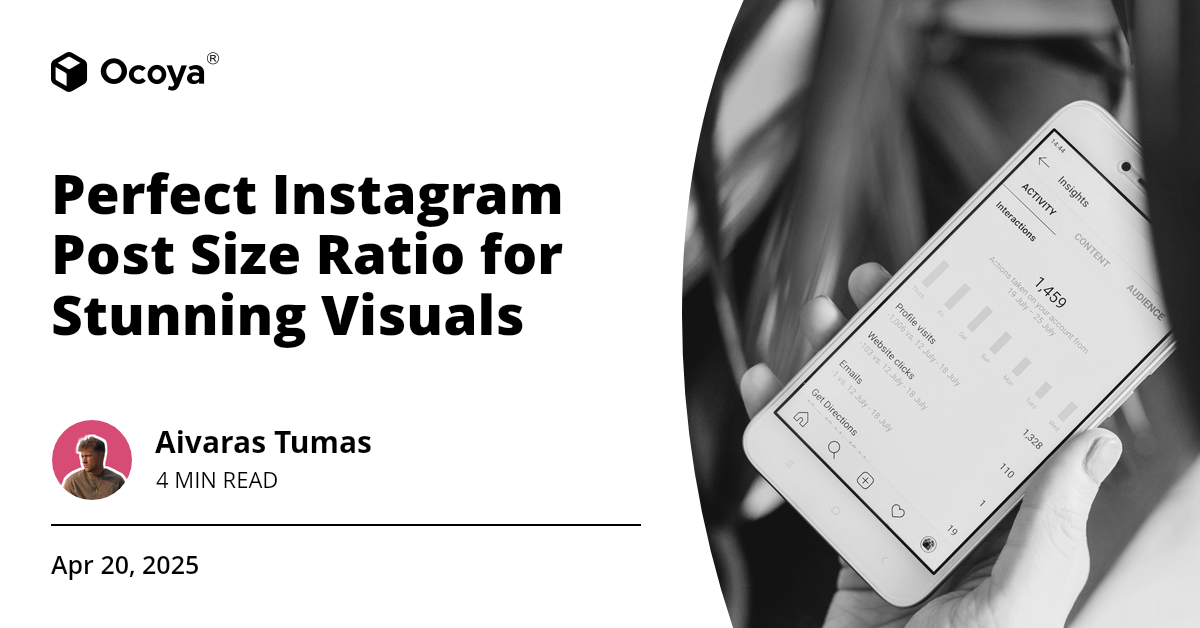

































































.png)